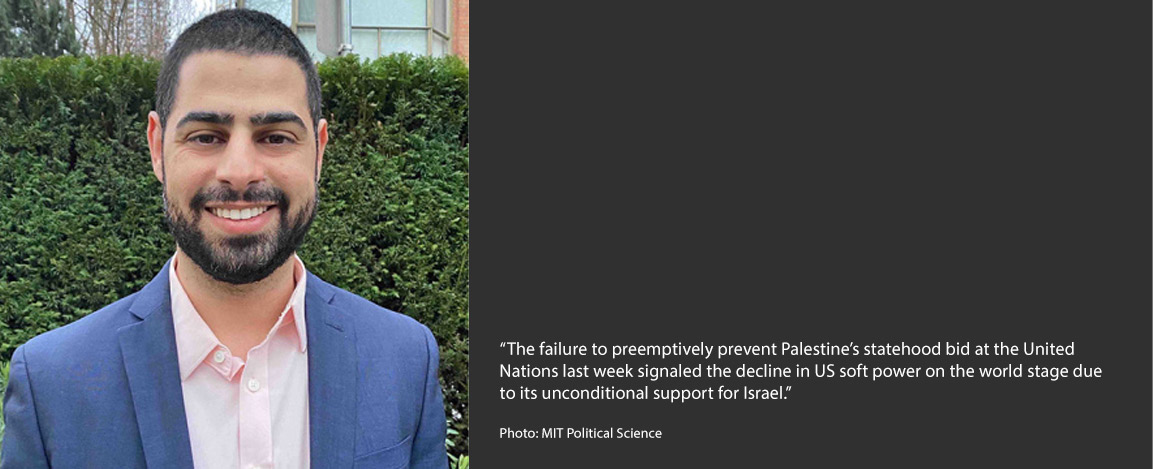The failure to preemptively prevent Palestine’s statehood bid at the United Nations last week signaled the decline in US soft power on the world stage due to its unconditional support for Israel. Below is an excerpt from the original article published by the Middle East Institute. Read the full article here.
On Thursday, April 18, the United States vetoed a United Nations Security Council (UNSC) resolution that would have granted Palestine full membership in the UN. It was the fourth time since October 2023 that the US used its veto power to defend Israel and the latter’s interests. Since the 1950s, it has vetoed dozens of UNSC resolutions condemning Israeli aggression or supporting Palestinian rights. The US has also voted against a number of other resolutions to grant Palestine various statuses in the UN, including in 1974, when the Palestinian Liberation Organization was recognized as the sole legitimate representative of the Palestinian people and accorded observer status in the UN, and in 2012, when the State of Palestine was granted the status of a non-member observer state.
The Biden administration is aware that its continued defense of Israel on the international stage is costly and unpopular: prior to Friday’s vote, it wanted to avoid using its veto power. The support of 9 out of 15 members of the UNSC was required to put the resolution to a vote, but the US could not convince enough members to oppose the initiative, thus forcing Washington to use its veto. Even before Friday’s vote, the Biden administration discouraged Palestinian President Mahmoud Abbas from moving forward with his request, but he did so anyway and is now threatening to “reevaluate” diplomatic ties with the US over its veto. Both of those failures signal a decline in the US’s soft power due to its unconditional support for Israel.
On the Palestinian side, the failed bid had different ramifications. Had the UNSC resolution succeeded, Abbas would certainly have spun it as a personal victory to strengthen his position. Evidence from recent polls indicate that his approval rating is only 14%, and 84% of respondents want him to resign. Yet given his weak domestic support and increasingly few allies, his threats to cut ties with the US will not be taken seriously.
More importantly, Palestinians see the bid for full membership in the UN as part of their rights as a sovereign nation and not simply as a decision put forward by Abbas because of his desire to remain in power. Even rival Hamas denounced the US decision to veto the resolution on the basis that it denies Palestinians their rights, indicating a broader societal desire for international recognition.
In any case, the success of acceding to the UN as a full member would be largely symbolic, at least in the short term, and would not immediately resolve any issues facing Palestinians. Yet it would certainly enhance Palestine’s image among sympathetic nations and provide it with new institutional mechanisms through which it could more effectively prosecute its struggle against Israel.
Read the full article published by the Middle East Institute here.




